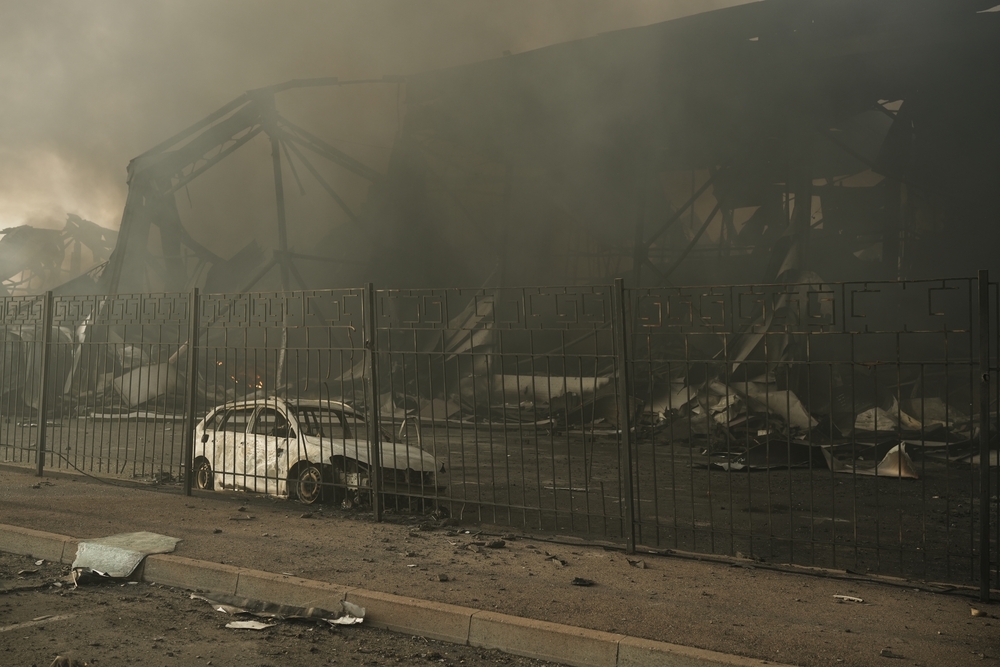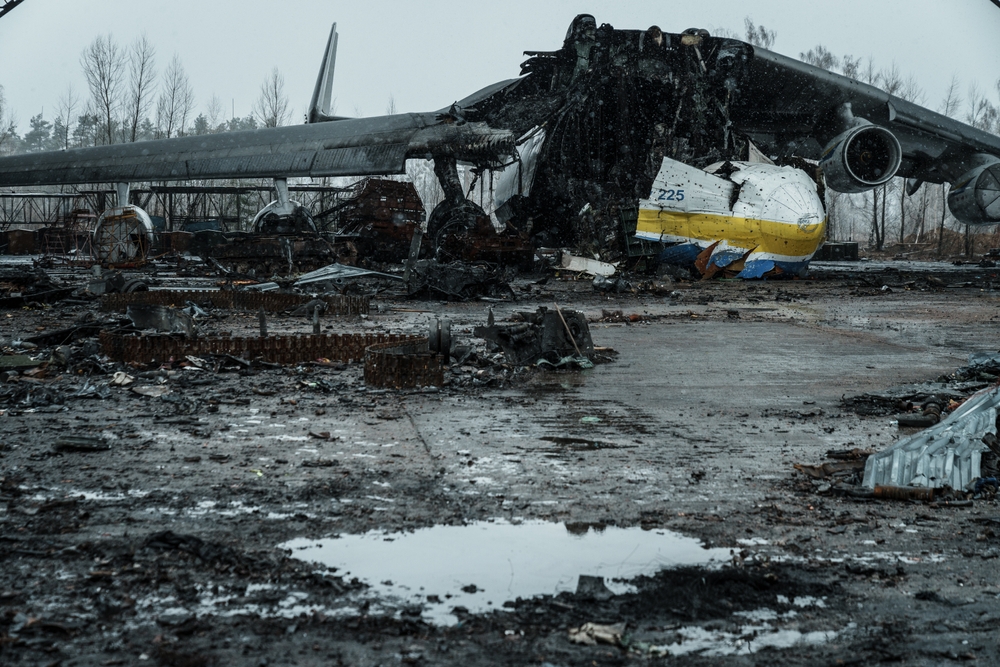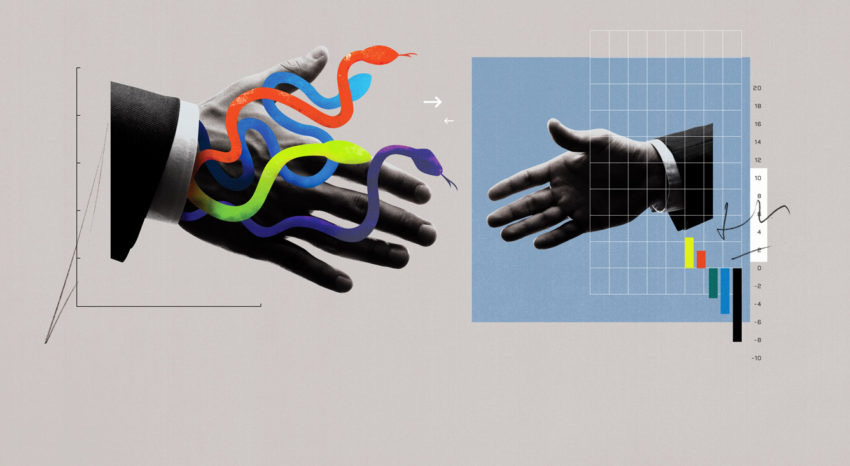Under customary international law, States and their properties are protected by immunity from the jurisdiction of foreign courts and immunity from the execution of judgments. Defeating these immunities will be the primary challenge for any lawsuit against Russia for the compensation of losses caused by Russia’s armed aggression in Ukraine.
When Ukrainian nationals sue Russia in national courts of Ukraine or those of any other State, Russia will claim that foreign courts may not consider any lawsuit against Russia because Russia possesses absolute immunity from the jurisdiction of foreign courts for its sovereign acts, even if the acts of Russia’s army in Ukraine are contrary to international law.
Russia’s position will be the same when Ukrainian nationals move to freeze properties owned by Russia outside its borders and conduct a forced sale of Russia’s properties in Ukraine and other States to execute judgments against Russia. Russia will claim that its properties employed for public purposes are protected by absolute immunity from execution and may not be attached or subjected to a forced sale without Russia’s consent.
However, this is not true.
This article explains why Russia’s immunities are not absolute and why national courts should deny immunities related to any lawsuit for losses caused by Russia’s armed aggression in Ukraine, including any losses from Russia’s occupation of Crimea and Donbas. It also proposes changing Ukrainian law to enforce losses from Russia effectively.

What about international courts
Recovery of damages for losses caused by Russia’s armed aggression against Ukraine is usually discussed from the perspective of claims to international courts. However, in respect of most claims against Russia, international courts will not have jurisdiction. Besides, unless Russia complies voluntarily, it may not be possible to enforce their judgments against Russia. Finally, most claimants will not be able to effort such claims. Ukraine or its nationals could win cases against Russia in the European Court of Human Rights. However, Russia said that it would not comply with ECtHR’s judgments. Ukraine may also win the Genocide Case against Russia in the International Court of Justice. But States shall comply with ICJ’s judgments voluntarily, while Russia has no intention to do so. Ukrainian investors may also submit investor-state claims against Russia to arbitration under Ukraine-Russia Bilateral Investment Treaty. But in most cases, tribunals will not have jurisdiction. Ukrainian enterprises suffered most losses and impairments to their investments, not through expropriation or unfair treatment in Ukrainian territories occupied by Russia. Instead, their investments were destroyed or damaged in active military actions in Ukraine’s territories, which were not under Russia’s occupation and over which Russia did not exercise its effective control. As a result, arbitral tribunals may deny their jurisdiction. Besides, except for losses resulting from unlawful armed aggression, under customary international law, States are usually not responsible for any private losses caused by military actions. Although Russia’s military aggression against Ukraine is evidently illegal, there is currently no judicial recognition of such illegality (such as an ICJ judgment). It is yet another ground that tribunals may use to deny jurisdiction. Finally, investor-state arbitration against Russia is an expensive exercise that will not be affordable for most Ukrainian nationals, including small and mid-size enterprises. National courts are a more affordable alternative for suing Russia. However, do they have jurisdiction for lawsuits against Russia? Besides, will Ukrainian nationals be able to execute judgments through the forced selling Russia’s properties?
How national courts punished aggressor states
To recover damages from Russia, Ukrainian nationals must overcome both State immunities of Russia – immunity from jurisdiction and immunity from execution. It is hard but not impossible. The national courts of Italy, Greece, and South Korea have recently denied immunities to aggressor States – Germany and Japan. The courts reasoned that States could not be permitted to abuse their sovereign rights, including sovereign immunities, and that judicial recognition of their immunities would be unfair and amount to a denial of justice. Ukrainian courts have treated Russia’s immunities in the same way. Italian Court Practice Italian lawsuits against Germany for the compensation of losses caused by Nazis during WWII is a well-known example. Initially, the Italian lower courts rejected these lawsuits referring to the jurisdictional immunity of Germany. But in 2004, the Supreme Court reversed one of the cases, ruling that Germany had no immunity from the war crimes committed in Italy. Many other Italian victims brought lawsuits against Germany in Italy based on this precedent. Germany then sued Italy in the International Court of Justice. In 2012 the ICJ ruled in the Italian Jurisdictional Immunities Case that Italy violated Germany’s immunity from the jurisdiction of Italian courts. Italy complied with the ICJ’s judgment by enacting a law instructing Italian courts to respect Germany’s immunity from any lawsuits related to WWII. However, the Italian courts referred this issue to the Italian Constitutional Court, which ruled that granting jurisdictional immunity to Germany based on the ICJ’s judgment would be contrary to the Italian Constitution that guarantees the right of access to justice. The Constitutional Court denied immunity to Germany, an aggressor state, protecting the fundamental constitutional rights of Italian nationals to a fair trial. Greek Court Practice In Prefecture of Viotia v. the Federal Republic of Germany, Case № 137/1997, the courts of Greece denied jurisdictional immunity to Germany from lawsuits for the compensation of losses from war crimes committed by the Third Reich in Greece in WWII, including the willful killings of civilians and destruction of property in the Prefecture of Viotia in southern Greece. The Greek courts denied sovereign immunity to Germany, stating, among other reasons, that sovereign immunity is a right and Germany may not be allowed to abuse its rights. Court Practice of South Korea Last year, the Seoul Central District Court of South Korea rejected Japan’s immunity pleas in a case brought by twelve ‘comfort women’ who were forcibly subjected to systemic sexual enslavement by the Japanese armed forces before and during WWII. In its judgment dated January 8, 2021, the lower court awarded 100 million won (around EUR 77 thousand) to each woman, reasoning that Japanese courts repeatedly dismissed the lawsuits of Korean women against Japan, depriving them of their right to a fair trial. Besides, the South Korean judges, similar to their Italian and Greek colleagues, said that Japan may not be allowed to abuse its immunity to “avoid reparations and compensations.”
How Ukrainian courts treat Russia’s immunities
In at least eighty-three (!) rulings and judgments, Ukrainian courts denied jurisdictional and execution immunities to Russia by freezing Russia’s property rights and awarding compensation for losses from Russia’s armed aggression against Ukraine. For example, in Case No. 752/7929/16-ц, Holosiyivskyi District Court in Kyiv awarded compensation to a Ukrainian national for losses from the unlawful occupation of Donbas by Russia. The lower court reasoned that “a State [Russia] grossly violating fundamental individual rights and freedoms, which are guaranteed by international law, may not rely on its immunity from the jurisdiction of foreign courts to avoid [Russia’s] responsibility for committing crimes against human life and for damages to property.” In other words, Russia as an aggressor state may not enjoy its jurisdictional immunity in Ukraine. Most recently, the Ukrainian Supreme Court has reaffirmed this position. On April 14, 2022, the Supreme Court ruled in Case No. 308/9708/19 that “after the start of the war in Ukraine in 2014, any court of Ukraine, considering any case where the Russian Federation is named as a defendant, has the right to ignore immunity of that State [Russia] and decide lawsuits for the compensation of losses to any individual resulting from the armed aggression of the Russian Federation.” However, decisions of the national courts of Italy, Greece, South Korea, and Ukraine are rather exceptional than common. But Russia’s armed aggression against Ukraine may dramatically change the States’ and their national courts’ approaches to sovereign immunities. Many other things that looked like set-in-stone have already changed, too. For example, who could have imagined that the U.S. and other States may freeze the foreign currency reserves of the Russian Federation’s Central Bank? Till now, with rare exceptions, central banks’ properties were absolutely inviolable in international law! But Russia’s armed aggression changed the world.
What Ukraine shall do to make Russia pay
Ukraine shall, by all means, help every Ukrainian national and enterprise affected by the Russian armed aggression recover losses from Russia in court. For that matter, Ukraine may enact a law to deny immunities to Russia from any lawsuits related to Russia’s armed aggression. It is essential to strip Russia from jurisdictional immunity and immunity from execution. The law shall explicitly allow the jurisdiction of Ukrainian courts to decide any lawsuit against Russia, freeze Russia’s properties (commercial and public), and execute court judgments (and investor-state arbitral awards) against Russia through a forced sale of its properties. Besides, Ukraine should consider enacting modern procedural instruments to be used by Ukrainian nationals for more effective judicial recovery of losses from Russia. Such instruments may include collective claims to Russia, the right to execute judgments against Russia through freezing, and a forces sale of any properties owned directly or indirectly by Russia and any Russian national (Russian individuals and legal persons). Ukrainian procedural rules should permit Ukrainian courts to issue worldwide freezing orders against Russian public and private properties, similar to English courts, and worldwide discovery orders to help Ukrainian claimants discover assets owned by Russia or its nationals. Strict financial and criminal liabilities shall apply for any obstruction of justice. Besides, it is essential to provide for a special statute of limitations (e. g., 30 years) for any lawsuit against Russia for the compensation of losses caused by Russia’s armed aggression in Ukraine and, e.g., 15 years, for the execution of judgments or arbitral awards against Russia. It is not a complete list of changes that Ukraine may introduce to its procedural rules for more effective judicial recovery of losses caused by Russia’s aggression in Ukraine.
The United States and other allies should permit execution of Ukrainian judgements against Russian assets (public and private)
Russia and its nationals do not have sufficient properties in Ukraine to cover all losses caused to Ukraine and its nationals by Russia’s armed aggression in Ukraine started in 2014. It is, therefore, important for Ukraine to request the United States, the United Kingdom, and all other Allies States to change their laws, to the extent necessary, to permit the recognition and enforcement of the orders and judgments issued by Ukrainian courts (and investor-state arbitral award) for damages from Russia’s armed aggression in Ukraine through freezing and a forced sale of any Russian assets, state-owned and private. Ukraine and the Allies States may agree on such recognition and enforcement in a treaty. Convincing its Allies to execute Ukrainian judgments through a forced sale of Russian state and private assets, disregarding the sovereign immunities of Russia and private rights of its nationals, will be a challenge. Ukraine will need strong arguments. One of them is that under international law, Ukraine and its Allies States may exercise their inherent individual and collective rights to self-defense to take any measures to ensure the cessation of Russia’s armed aggression and full compensation of losses by Russia.
Self-defense against sovereign immunities
By committing military aggression against Ukraine, Russia has violated its international obligation not to use force against another sovereign State. Under customary law and Article 51 of the UN Charter, in response to Russia’s military aggression against Ukraine, Ukraine may exercise its inherent right to individual self-defense, and its Allies States may exercise inherent rights to collective self-defense, to deny jurisdictional immunity and immunity from execution to Russia and to take any other legislative, executive or judicial measures to ensure judicial recovery of losses from Russia’s armed aggression against Ukraine through a forces sale of any assets owned by Russia and its nationals. In self-defense, Ukraine and its Allies States are permitted to take any proportionate and necessary measures to ensure the cessation of Russia’s armed aggression and the compensation of losses caused by Russia. Even if such measures violated Russia’s sovereign rights or any rights of its nationals, self-defense would preclude their wrongfulness. Self-defense rights are so essential under international law that they permit Ukraine and the Allies States to disregard Russia’s sovereign rights, including Russia’s sovereign immunities and rights of its nationals, in response to Russia’s armed aggression against Ukraine. Fighting Russia’s armed aggression, Ukraine is building one of the strongest armies in the world. Now is the right time for Ukraine to enact modern procedural instruments and rules for the national courts of Ukraine to have powerful weapons to make Russia and Russian nationals pay for any losses caused by their armed aggression in Ukraine.
The author is grateful to the associates of Ulysses Anastasiia Kotliarchuk and Sofia Kurochka for their diligent research and valuable assistance in preparing this article.
This article was written for European Pravda: https://cutt.ly/YLXZPoc.




